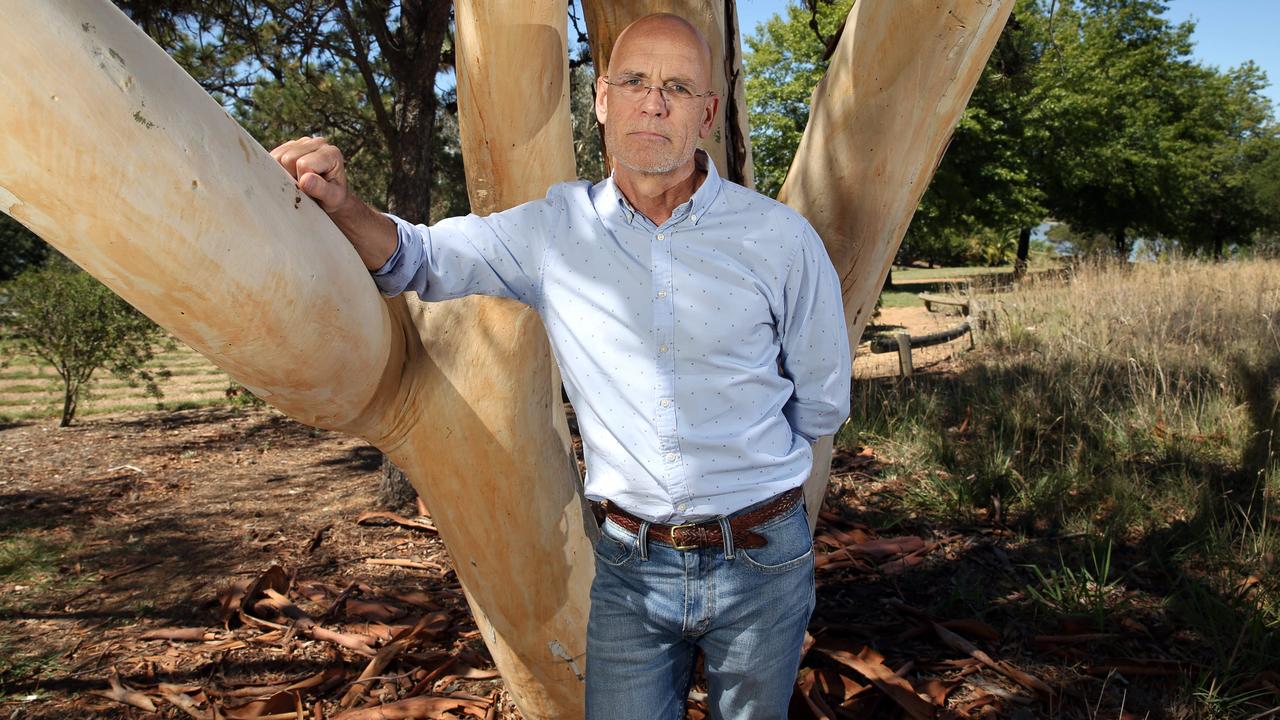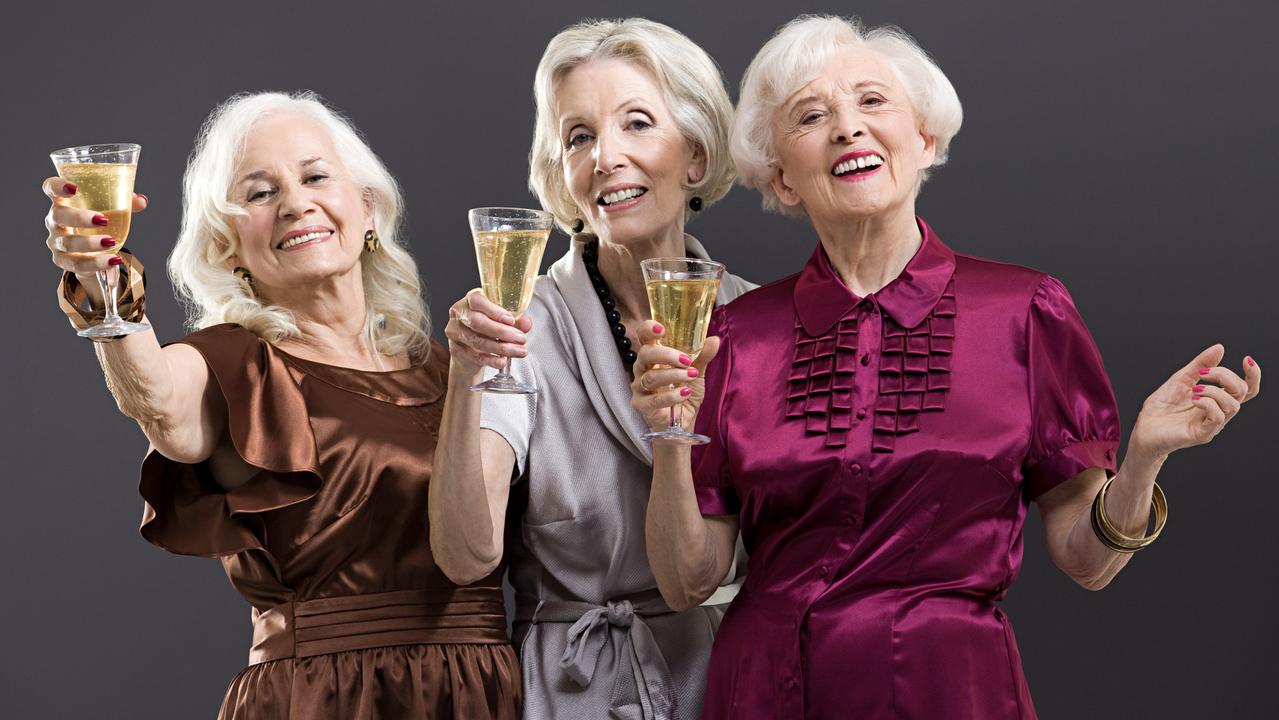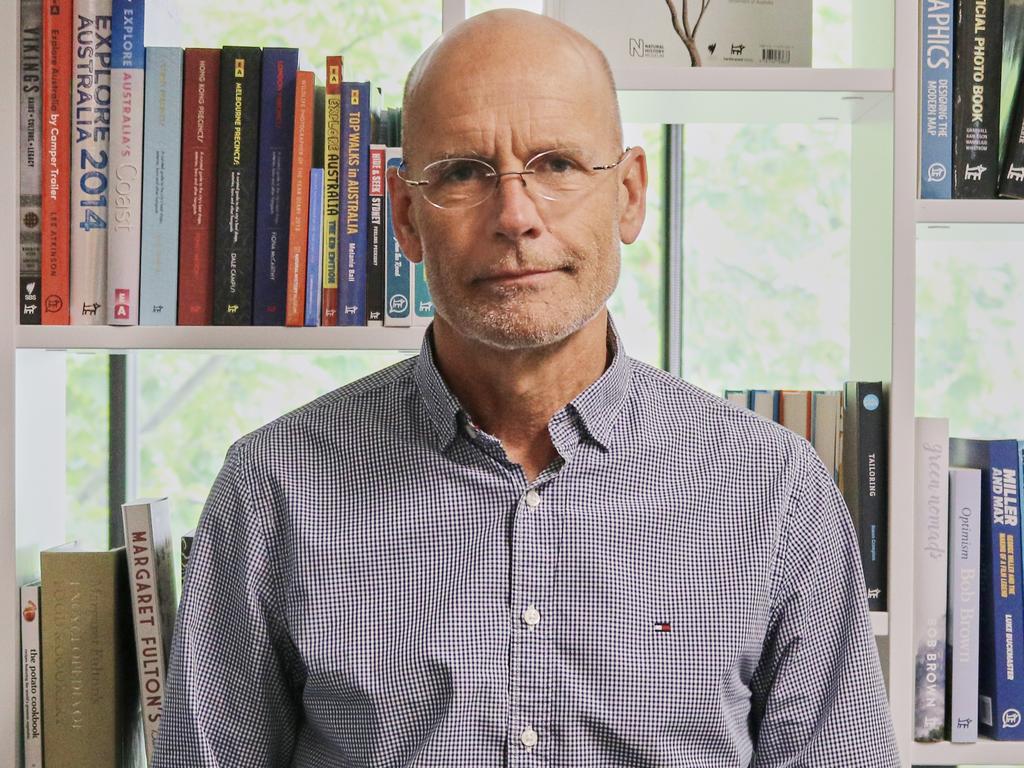The big problem with blaming Boomers for everything that’s wrong with the world
A comedian’s rant about Boomers is still resonating today as a generational war rages on - but experts say there’s a big problem with the argument.
A few years ago, popular comedian Tom Ballard took to the stage at Melbourne Comedy Festival and asked the audience: “When the f*** are Baby Boomers going to die?”
The 34-year-old, who penned the book I, Millennial: One Snowflake’s Screed Against Boomers, Billionaires and Everything Else, shared his frustration that older Australians had “left us with a f***ed economy and a dying planet”.
“When are they going to die?” Ballard asked. “They are hanging around like a John Farnham farewell tour. When the f*** are they going to wrap it up, shuffle off this mortal coil and give me a house?”

While particularly pointed, the comic’s act of ‘Boomer blame’ is nothing new. A generational war has been waged for years now.
Earlier this year, youth website BuzzFeed ran a story titled “11 Things Baby Boomers Destroyed” that ascribed blame for everything from the economy to education investment and irreversible environmental damage that “has screwed future generations long after they are dead”.
And a growing cohort of younger political activists are pointing to the vast wealth of older Aussies as a sign the system is rigged.
Noted intellectualist, author and academic Clive Hamilton – a proud Boomer – said a “rich-poor divide is being blamed on an old-young divide and it’s just plain wrong”.
The Professor of Public Ethics at the Centre for Applied Philosophy and Public Ethics at Charles Sturt is alarmed by the increasingly “spiteful” tone of the Boomer blame game.
“Increased pressures in terms of housing and cost-of-living certainly makes the situations of younger people, particularly those less well-off, very acute,” Professor Hamilton said.
“There’s no denying that young people face serious difficulties. It’s just that it’s not Boomers who are to blame.”

And worse, he believes those who “dredge up all kinds of so-called facts” to prove Boomers are “the source of all evil” are letting those responsible for the impacts of housing inequality and worsening cost-of-living pressures completely off the hook.
The ‘gimme’ generation that wasn’t
In making their cases, some younger generations point to the apparent perks received by Baby Boomers when they were growing up.
Free university, for example, is dreamt about by those racking up huge HECS debts for their degrees, but Professor Hamilton pointed out that fewer than 10 per cent of Boomers benefited.
That’s because the vast majority of Boomers left school and went into trades – often gruelling physical occupations that didn’t pay salaries.
In 1966, tradespeople accounted for 21 per cent of the total workforce, while machinery operators and heavy vehicle drivers made up another 11 per cent. These days, those occupations account for 14 per cent and six per cent respectively.
Peter Abelson, an economist at the Crawford School of Public Policy at Australian National University, said younger Aussies are enjoying “arguably more pleasant working conditions”.
“There has been a major shift from blue-collar to white collar work,” Mr Abelson wrote in an article for The Conversation.
“The share of the workforce employed in generally less physically demanding professional jobs has doubled, while the share employed in personal service jobs nearly tripled.”

Professor Hamilton said the myth that Boomers are hoarding huge amounts of money ignores the fact that the country is set to undergo a historic transfer of wealth.
Demographer Mark McCrindle said those aged 55 and older have a combined $2.8 trillion and over the coming two decades, this will exceed $3 trillion – most of which will be passed on.
“Therefore, the decades ahead will see the biggest intergenerational wealth transfer in Australia’s history and many of the younger generations will be the main beneficiaries,” Mr McCrindle said.
Headline figures like that ignore the fact a significant cohort of Boomers don’t remotely reflect the “rich, smug, self-satisfied and selfish” characterisation that’s often made, Professor Hamilton said.
“A lot of Boomers out there are really struggling, and they always have. They didn’t go to university, they’ve never had well-paying jobs, if they were women, they were often out of the labour market, they have minimal or no super, and they’re going to be reliant on the age pension.
“There’s a hell of a lot of them. We’re talking about roughly half of the generation. To characterise them in the way some people do is actually really offensive.”
Ways young Aussies have it better
Over time, the growth in net disposable income per capita has meant that Millennials are about 51 per cent better off than Generation X was at their age, and 91 per cent better off than Boomers.
“And those figures are likely to understate how much better off their standard of living is,” Mr Abelson said.
“The quality and range of goods and services from food to cars to healthcare to computers to mobile phones with cameras has improved in ways figures can’t capture. Many didn’t exist in the 1970s.”

For example, young Australians are more educated than other generations in the past and thus have greater earning potential.
The proportion of men with a tertiary degree between 1975 and 2016 leapt from less than four per cent to 20 per cent, while for women is grew from two per cent to 24 per cent.
“Women are much more likely to be in paid employment than 40 years ago,” Mr Abelson added.
And a report on Household, Income and Labour Dynamics found being highly educated is likely to lead to higher levels of wellbeing, healthy behaviours, and social engagement.
Younger Aussies are also healthier and living much longer, with the extra years of life enjoyed by men who hit 65 surging from 12.3 years for a Boomer to 19.6 years for a Millennial, and for women who hit 65 from 15 years for Boomers to 19.6 years.
“Importantly, the Institute of Health and Welfare finds most of the additional years are healthy years, with the proportion of lives spent in ill health little changed,” Mr Abelson said.

The world is also a much safer place, with rates of homicide halving between 1996 and 2016, while robberies reduced by 56 per cent in the same period, he said.
“Driving on roads has become far safer. Between 1976, and 2016 road deaths per 100,000 people fell from 25.5 to 5.3.”
Millennials also enjoy less air and water pollution than Boomers did as young adults in the 1970s, while building standards are significantly better.
And all of the social progression that’s been made when it comes to racial and LGBT rights? Professor Hamilton said young Australians can thank Boomers for getting the ball rolling.
“As a progressive Boomer, I’m amazed people are condemning the radical generation. Boomers transformed the world. They’re responsible for the arrival of feminism, gay rights, black rights, the environmental movement. They forced those issues into the mainstream.
“Of course, Boomers have become more conservative, but hey, that’s a law of society. Those Millennials complaining so bitterly now, I’ve got news for you.”
Where things are imbalanced
The housing market is deeply inequitable between generations, with the so-called Great Australian Dream of homeownership slipping out of reach.
A staggering 60 per cent of Boomers aged between 25 and 34 owned their own home, while for Millennials in the same age bracket, that figure fell to 37 per cent.
Boomers paid an estimated 3.5 times their annual salary when purchasing a home, while young Aussies these days are staring down the unrealistic figure of about eight times their salary.
Younger men and women experience higher rates of anxiety and mood disorders, while reported sexual assaults have also risen from 80 per 100,000 people in 1996 to 95 in 2016.
Millennials are also likely to be much lonelier than Boomers were at the same age.
“The proportion of Australians actively engaged in community organisations fell from 33 per cent in 1967 to 18 per cent in 2004, with major declines in church attendance, membership of unions and political parties, and participation in organised sport,” Mr Abelson said.
“Whereas in the Boomer year of 1984, Australians had an average of nine trusted friends each, by the Gen X year of 2018 that number had fallen to five.”

The climate is also deteriorating, with NASA reporting the past several years have been the hottest in recorded history.
According to the CSIRO, the climate in Australia has warmed by 1.44C since records began in 1910. The prospects of the world limiting warming to 2C or less, which climate experts say is necessary to avoid catastrophe, will be more and more challenging to achieve.
While the nation’s wealth has grown over recent decades – and surged by some seven per cent from pre-Covid to now – research shows it’s far from evenly distributed.
Roy Morgan chief executive Michele Levine said the firm’s latest Wealth Report, released this week, shows half of the population holds 95 per cent of the wealth.
“To see that the bottom half holds less than 5 per cent of the wealth speaks to a wealth divide in Australia,” Ms Levine said. “And the finding that the poorest 10 per cent of our nation has gone backwards, and is further in debt, is extremely worrying.”
Economist and MacroBusiness co-founder Leith van Onselen said Australians aged 65 years and over did particularly well during the pandemic, amassing a staggering $160 billion of savings.
“Younger Australians tread water,” Mr van Onselen said of the Covid period.

But Janna Thompson, a Professor of Philosophy at La Trobe University, said “young people’s economic disadvantage is unlucky” but not “unjust”.
“Basic requirements of justice do not mean generations should have equal capacity for gaining wealth, but younger generations do have reason to complain of injustice if their government favours those members of older generations who are already wealthy,” Professor Thompson wrote in The conversation.
And therein lies the problem – blaming Boomers for everything redirects anger from its deserved target.
More anger but nothing changes
For all the power they’re given via “nasty” characterisations, Boomers are largely no longer in charge of things, Professor Hamilton said.
“It’s Gen X and Millennials who dominate politics and business, and indeed the media,” he said.
“The Boomer blame is lazy. It absolves commentators from looking at data and statistics, talking to a variety of people, and nothing changes.
“What annoys me is that it takes the pressure off the real causes of the inequality that maybe people face. That’s in the interests of those responsible.”
And so, no attention is paid to the architects and caretakers of systems structured to benefit those who are already wealthy – who Professor Hamilton points out “are not just Boomers, by the way”.
Each generation has been compared to the one before it, but Mr Abelson cautioned that “data tells us a lot about lives on average, and little about the lives of individuals”.
“It’s tempting to think the most recent generation is always the worst off, with all the talk about the cost of living and other things,” he said.

But assessing the overall position of young Australians compared to the generations that have come before them is about more than broad generalisations.
Dan Woodman, Associate Professor of Sociology at the University of Melbourne, believes generational descriptors are unhelpful and “verging on astrology”.
“No generation should be characterised as if they have one personality type, with a single set of dispositions and attitudes, even if it is nice,” Associate Professor Woodman wrote in The Conversation.
“Generational claims, such as ‘the Millennials are narcissistic’, aren’t completely evidence-free, but are heavily critiqued for often making too much of small average changes in attitudes, turning them into group-defining oppositions, and ignoring more significant changes.”

The same goes for Baby Boomers, with sociologist Jennie Bristow from Canterbury Christ Church University in the United Kingdom describing Boomer blaming as “one of the nastiest narratives of the past decade”.
“Everything from environmental destruction to the problems of the economy, the housing market, the welfare state, youth unemployment and children’s mental health, has been laid at the Boomers’ door,” Ms Bristow wrote in The Conversation.
“Solutions to the economic or cultural problems of today will not be found by rewriting the past and castigating those who happened to live there. We should be living in the present and embracing the future.”



